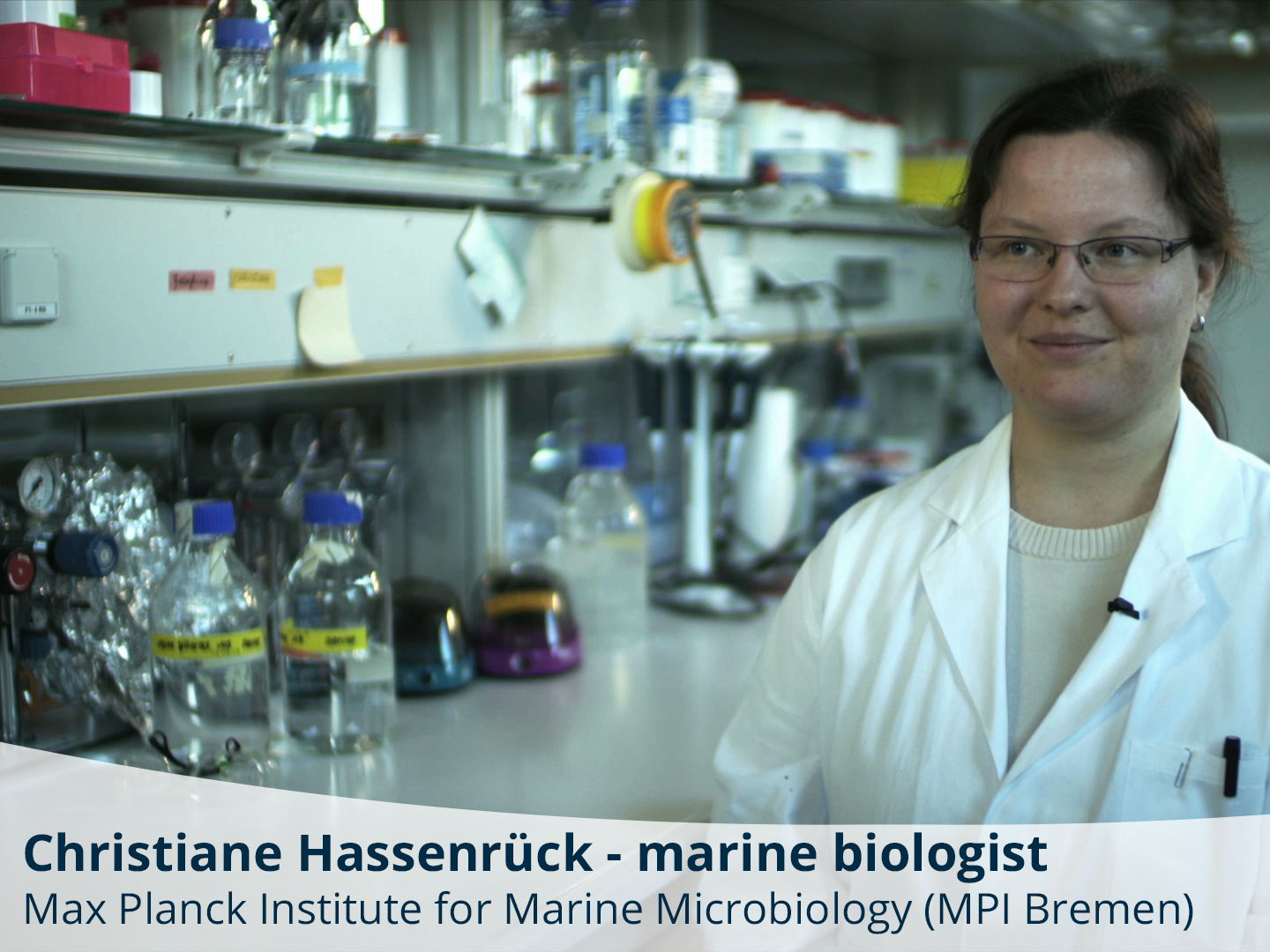Christiane Hassenrück
Christiane Hassenrück, marine biologist at Max Planck Institute for Marine Microbiology (MPI Bremen) went to Papua New Guinea to dive into the future ocean: Volcanic carbon dioxide (CO2) bubbling up from the seafloor turns the water at coral reefs more acidic. Compared to the amazingly colourful reefs that still exist in some places at Papua New Guinea, the high CO2-reefs seem barren and poor in species.
At the laboratory and at the office – where she spends most of her working time – Christiane Hassenrück studies the genetic material of microorganisms from different reef locations. “Before, I never thought about microorganisms very much. But as soon as I started working here, I quickly became enthusiastic about how important they are for the whole ecosystem”, says the marine biologist who is still eager to find out more about how exactly these tiny bacteria are affected by ocean acidification and what this means for the coral reefs.
